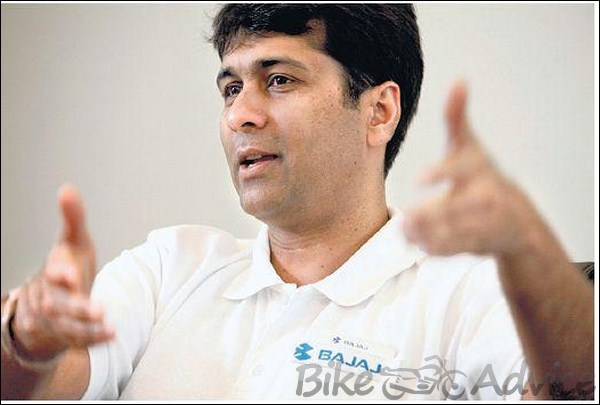
India, undoubtedly is THE place for every single automobile company that wants to be BIG in the years to come. Our growing economy, despite the economic turmoil that many developed nations are undergoing presently, our increased per capita income and growing young population are few of the major reasons that are mainly attributed for this situation.
Most two wheeler giants see a similar kind of potential in Asian markets as a whole. Indonesia is one such market with a huge potential though not as such as India but with a decent performance compared with most other nations out here.
Bajaj Auto and TVS Motors have already marked their presence here and are giving due importance to this small market owing to the less competitors. Things have drastically changed with many Japanese players dominating here and choosing of right strategy decides the winner here.
Bajaj Auto had already launched its flagship series of bikes – Pulsar a few years back and the model was taken very well in the Indonesian market. PulsarManiacs need not specifically be Indians; after all there is no boundary for bikes and bikers. Pulsar proved it right!
The news now is that Bajaj Auto has formed a strategically beneficial alliance with the Kawasaki Heavy Industries. As part of this agreement, Bajaj motorcycles will be assembled and sold in Indonesia through the Kawasaki’s well – defined distribution network and the products from now on will be co–branded, something like what we’d in India by the name K-Bajaj or the Calibers bearing Kawasaki’s logo and name quite sometime back.
Both the companies got approved this alliance by their respective boards. This way, both companies will be mutually benefited in terms of production and marketing activities.
Now, there is a reason for the Indonesian bikers to rejoice. Guess why? The first product to be rolled out following this alliance would be the newly launched Pulsar 200NS. These bikes would be manufactured in India in the Chakan plant near Pune and will be assembled in Indonesia as SKD (Semi Knocked Down) units. These shipments are expected to commence by the mid of next year (2013).
The main reason for this alliance as explained by Mr. Rajiv Bajaj, Managing Director, BAL is to avoid lot of losses that the company might face in the Indonesian market. Bajaj Auto had so far managed to sell around 50,000 units of Pulsars in Indonesia over the last few years.
Indonesia, as a two wheeler market boasts of a potential of around half a million units an year. Japanese players have managed to have a strong foothold in this market.
According to Business Line, ‘Bajaj and Kawasaki have had a similar partnership in the Philippines since 2004, and together command 45 per cent market share here. After Indonesia, the Indian company hopes to extend such a marketing arrangement to another six to seven markets globally, including Brazil, in the next 3 – 5 years’ time.’
Mr. Bajaj expressed his interest in marking a global footprint when it comes to manufacturing of two wheelers. “We have decided to be a global company and sell motorcycles all over the world. We want to stay in a narrow band as far as products are concerned,” he said.
During the company’s Annual General – Body Meeting (AGM), Mr. Bajaj had passed on the info to its share-holders that the company wanted to achieve a target of 10 million units in annual sales by the year 2016 and estimated that 50 per cent or more of this would come from exports. Probably, this is an hint for us to get many more things revealed for the future. 50 per cent from exports is indeed a very massive figure and the time is not far away. It’s just 4 more years down the line.
Last year, Bajaj Auto sold 1.2 million units of bikes in the export markets, which accumulated for about 70 per cent of total units manufactured and exported from India. Mr. Rakesh Sharma, President, International Business said that the company has set up an assembly unit on every market where the sales exceeds 10,000 units.
This way, Bajaj Auto has 14 such assembly units so far in Africa, South Asia and Latin America. It is in the process of setting up six more in Kenya, Tanzania, Ethiopia, Egypt, and two more in West Africa as well.
Let’s wait to watch the way Bajaj Auto grows up in overseas markets demanding respect as an Indian company.
Regards,
Naren.
Team BikeAdvice.


![Royal Enfield Guerrilla 450 Launch This Year [Speculation]](https://bikeadvice.in/wp-content/uploads/2022/12/Royal-Enfield-Hunter-450-pic-headlamp-100x70.jpg)